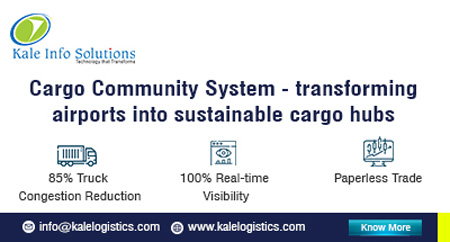
 |
 |
 #INTHEAIREVERYWHERE |
| Vol. 23 No. 41 | Thursday October 10, 2024 |
| |
 |
United Airlines Cargo can handle whatever, whenever is the core message October 8 as the Chicago-based wunderkind global cargo resource further rolls out “a new online booking experience.” “Booking online is about to become even easier,” UA said on its website as “WebCargo and United Cargo have developed a new online booking portal intended to enhance United Cargo’s website offering to freight forwarders. “The heightened online experience will unleash seamless booking and tracking functionality, “Our customers are seeking new ways to communicate and book with us. “The enhanced booking functionality on our website, along with our participation in the WebCargo marketplace, are two new booking options for our customers. “It’s another step forward in delivering an even better customer experience,” said Jan Krems, United Cargo President. “We are excited about these advancements and our collaboration with the WebCargo team spanning both our portal and the WebCargo platform,” Krems added. Here United Cargo’s Peggy Guse –VP of United Cargo Marketing, Customer Service & Alliances – and Eric Weseman – Cargo Alliances Manager – provide an in-depth look at what it takes to be the world’s leading belly carrier in today’s fast-evolving air cargo industry. |
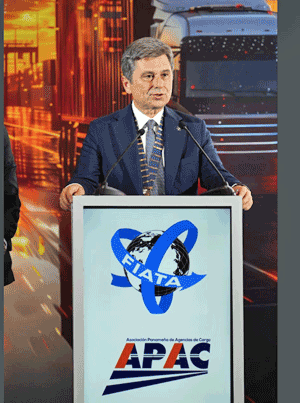 Since
2023 Turgut Erkeskin is the President of FIATA. Istanbul is the unique city,
with one leg in Europe and another in Asia, where Turgut lives and works.
I have witnessed his itinerary to the role of President and it did not take
much intuition to understand that this was a person bound to succeed. A
wonderful family, success in his business,
President of FIATA, one could think this is pure luck. No, not only, not
really. As for everyone else, luck may have helped him, but if you are not
a hard worker and a skilful one too you cannot get to the top. Turgut was
nominated by UTIKAD, one of the two Turkish Association Members of FIATA.
He started from the WG Sea, then served as Chair of the Regional Body Europe
and then entered the Presidency, also supported by his friend and fellow
citizen Kosta Sandalcidis. This shows the ability of these two great personalities
to resolve their competing ambitions in order to be successful, instead
of wasting their energies trying, and is just an additional proof of Turgut’s
diplomatic abilities, which I always admired and will become even more evident
as you read on. Since
2023 Turgut Erkeskin is the President of FIATA. Istanbul is the unique city,
with one leg in Europe and another in Asia, where Turgut lives and works.
I have witnessed his itinerary to the role of President and it did not take
much intuition to understand that this was a person bound to succeed. A
wonderful family, success in his business,
President of FIATA, one could think this is pure luck. No, not only, not
really. As for everyone else, luck may have helped him, but if you are not
a hard worker and a skilful one too you cannot get to the top. Turgut was
nominated by UTIKAD, one of the two Turkish Association Members of FIATA.
He started from the WG Sea, then served as Chair of the Regional Body Europe
and then entered the Presidency, also supported by his friend and fellow
citizen Kosta Sandalcidis. This shows the ability of these two great personalities
to resolve their competing ambitions in order to be successful, instead
of wasting their energies trying, and is just an additional proof of Turgut’s
diplomatic abilities, which I always admired and will become even more evident
as you read on. September 23rd to 27th Turgut Erkeskin was in Panama to preside the FIATA World Congress, where the who’s who of logistics was meeting. As usual, consequence entails. On 24th of September, “during the press conference, FIATA inaugurated its first-ever FIATA Market Report, which offers valuable insights into global trade and the evolving logistics sector. The report provides a comprehensive overview of the challenges and opportunities faced by freight forwarders, with a special focus on the Latin American region. As the host region of this year's Congress, Latin America serves as a key case study in understanding the dynamics of global supply chains, MSMEs, and infrastructural development. FIATA’s Market Report highlights the vital role freight forwarders play in global trade, while also addressing ongoing obstacles such as high trade costs, route connectivity issues, and workforce shortages. It reinforces the need for targeted investments and policies to foster inclusivity and sustainable growth in the logistics industry.” Turgut said that "In this complex system, FIATA is focusing on developing new routes and multimodal corridors to facilitate efficient movement across the supply chain. The FIATA World Congress in Panama allows us to explore Panama’s potential and the region's logistical connectivity, challenges, and opportunities", while the APAC President noted that Panama was well-positioned, due to its strategic transit location. This is how FIATA itself described the opening of the Congress: “Co-hosted by the Asociación Panameña de Agencias de Carga (APAC) and FIATA International Federation of Freight Forwarders Associations, the FIATA Congress brings together over 820 global leaders, stakeholders, and experts. The Congress comes at a critical time as global trade faces ongoing disruptions from economic uncertainties, technological transformation, and shifting geopolitical dynamics. In this context, the Region Americas is set to play an increasingly important role as a strategic logistics hub, connecting the world's largest economies and contributing to the global supply chain. The opening ceremony was graced by high-level addresses from the Panamanian Authorities, Minister José Ramón Icaza Clément and Minister Carlos Hoyos Boyd, FIATA President, Turgut Erkeskin and the Secretary General of the World Customs Organization (WCO), Ian Saunders. Turgut Erkeskin, opened the Congress by emphasising the importance of collaboration in tackling challenges facing the logistics industry today. Erkeskin highlighted how digitalisation, sustainability, and regulatory shifts are rapidly changing the landscape of global supply chains, urging stakeholders to embrace innovation while ensuring resilience. The representatives of the Panamanian Authorities highlighted Panama's importance in the logistics industry [and] the Panama Canal, the vital artery of logistics connecting over 200 ports in 170 territories. The WCO Secretary General pointed to recent initiatives aimed at modernising Customs operations to meet the demands of the digital economy. [By means of] special welcome videos the ICAO Secretary General, Juan Carlos Salazar, highlighted the joint training ICAO/FIATA DG programme, ensuring accessible and competency based learning on essential safety and security requirements in airfreight, [whilst] the ITF Secretary General, Young Tae Kim, [underlined] the need for stronger partnerships between public and private sectors to foster innovation and sustainability [and the] ongoing efforts to reduce carbon emissions in freight transport, a key priority for both governments and industry. Collaboration was the main theme stressed throughout the opening session, by all the speakers, highlighting the need for stronger partnerships between public and private sectors to foster innovation and sustainability in logistics.”
“Meetings such as the FIATA World Congress encourage dialogue between the different stakeholders across the supply chain and are a necessity to move the industry forward. This year’s Congress brought together 820 participants – the most since 2020 – marking a landmark development for global exchange and cooperation,” was FIATA’s DG Stéphane Graber’s conclusion. Despite his jam-packed agenda in Panama, Turgut was so kind to consider a short conversation with FlyingTypers. We started from drawing a parallel between the geographical position of Istanbul and Panama: both cities are crucial in their trade and logistics corridors. I congratulated Turgut on the choice of this year’s excellent Congress theme, which is so evocative, thinking of Panama’s position. This applies to Istanbul as well, yesterday and today. Let us go back in history for a minute to understand Istanbul’s importance. Constantinople is the Latin name of the city and substituted the more archaic name of Byzantium after the transformation impressed by the Roman emperor Constantine in 330 A.D. The idea of making this important city the centre of the Roman Empire, calling it “New Rome” was due to its absolutely unique geopolitical position, essential to continue controlling an empire that was never easy to keep under one rule. Looking at the map tells you that Istanbul lies precisely on a strait giving access to a large portion of Asia from Europe and the Mediterranean. In a period when no planes, trains or cars existed, travel and trade were almost exclusively made by waterborne transport, hence the position of Istanbul was crucial, and one way or another it still is today. The Byzantines were excellent innovators for the best part of their millennium and this kept them relevant long after Rome had fallen. After the fall of the Eastern Roman Empire in 1453, the city became the capital of the Turkish Ottoman Empire, but some of its Greek flair remained in its own modern name, Istanbul, which derives from the expression “in (to) the city”, in popular use for centuries. Istanbul is today the largest city in Europe, so big that its urban area extends well into Asia, and happily maintains its crucial role at the centre of international trade’s corridors. Coming to Panama, looking at the map from this side gives you an even more immediate visual of its crucial position: it is the only direct junction between the Atlantic and the Pacific oceans between the North and South Poles of the Earth! Let me now leave the floor to President Erkeskin: “The Great Connection motto underlines our role in global logistics: freight forwarders need an effective network that is essential to develop a cost and environment conscious system at the service of world trade. Things do not happen without working and planning, so we need a clear agenda that includes infrastructure, the Panama Canal being just one of the crucial transport corridors, digitization to enable automation, and sustainability in our development, which we hope will be robust in order to ensure prosperity to the next generations.” This was Turgut’s opening in our conversation. In its essence, all is there. Follow these instructions and the machine will work! In his speech in Panama, Turgut said that “we can say speed, cost savings and the ability to handle big volumes are crucial in our business and the Panama Canal is the epitome of these principles in action.” In our conversation Turgut expanded a little on the three concepts that have been central in his choices as President of FIATA: co-operation, sustainability, and innovation. “A more interconnected logistics network worldwide, where we cooperate to achieve our objectives, is crucial to ensure the services international trade needs. There simply is no international trade without well-functioning connection between and among all stakeholders in the value chain: we are an essential part of it.” I argued that this cannot happen without sustainability and Turgut replied that “more environmentally friendly practices within the industry are required by the rules, but also because it makes sense in terms of better, innovative business. If I manage to work toward the reduction of our environmental footprint, I shall be glad I have made my small contribution for a good reason,” he concluded. As Turgut mentioned the word ‘innovative’ I could not resist challenging him on this point. He promptly reacted: “The importance of innovation for FIATA to remain on top of industry trends is on my thoughts day in and day out. We took initiatives in freight forwarding procedures: FIATA was historically at the forefront of the process, but we need to encourage members to participate even more actively today. Members’ collaboration and innovation are able to shape the logistics industry with a view to achieving a more efficient, sustainable, and resilient global network for our sector, i.e. The Great Connection.” Looking at the concept of connection and the idea of transport corridors one inevitably lands in the area of multimodality. Turgut observed that the integration of different modes of transport – “we use them all” he said – affords efficiency and a reasonable degree of flexibility, which is essential for freight forwarders to provide their services. “The Great Connection is connectivity on a global level.” He then suggested that global multimodal connectivity requires transport and communication corridors serving areas that are in competition with one another and yet cooperate. Obviously Europe and China, China and the USA etc. are competitors, but they also cooperate for their businesses to flourish. And this healthy competition requires corridors, Panama being a crucial one as it connects the two busiest oceans in the world.
Turgut tapped on his diplomatic skills and expressed the following concepts with exceptional ability in my view: “I shall not even mention the fact that in Istanbul we are almost at a crossroads of the energy pipelines and corridors, as this would take us too far. This being said, there are a few examples that are telling us an interesting story even if we remain in the transport and communication corridors’ domain: at the end of last century colossal investments were made in communication infrastructures between and among Asia, Europe, America and the rest of the world. Without these, today’s lifestyle would be impossible. China’s Belt and Road Initiative consists of big investments in infrastructure projects across Eurasia, Africa and now even Latin America, to enable and maintain the trade lanes that connect China and the whole of Asia with Europe and Africa. At the same time Russia has been a principal player in Eurasian and intra-Asian logistics through its Northern Corridor, but today, because of the changing geopolitical conditions in the region, alternative routes circumventing Russia are gaining attraction. My country is at the centre of these new alternative corridors: we are pivotal in the Middle Corridor connecting Europe and Asia, the Caucasus region and Central Asia. This trade lane’s importance grows by the day and is probably destined to continue on this positive trend in line with the development of our economies. The U.S. and its allies have been working to keep China’s growing influence at bay by creating alternative initiatives, such as the “Connecting Europe” facility promoted by the EU, which aims to create another global infrastructure toward the East.” I was impressed by Turgut’s clear view on this complex, and at times unwieldy, assemblage of initiatives and interests, as well as by his pragmatic, business-like approach. FIATA could have hoped for no better steering, when it decided to land at Panama crossing.
On September 26th FIATA announced that “Laura Cristin Egerer, the Region Europe Winner nominated by Bundesverband Spedition und Logistik (DSLV) earned the title of this year’s Young Logistics Professionals Award (YLP) global winner” with a dissertation about “Reliable Logistics Solutions in an Unreliable Environment”, with solution-oriented, innovative thinking in “the export of an oversized combustion chamber and the import of a dangerous goods sea freight shipment.” Turgut Erkeskin’s statement supports the line: “For over twenty years, FIATA and TT Club have been providing valuable training opportunities for the young rising stars of the industry by organising a yearly contest. The competition demonstrates the recognition by FIATA and TT Club of the need to develop skilled human resources in the freight forwarding and logistics sector and to acknowledge young talents. This award is a unique experience for young professionals, allowing them to gain more experience in the industry and connections throughout the competition. Congratulations to Laura and all the finalists for their contributions and for illustrating the bright future of our industry.”
Time has come for closing my intervention. Save for the meeting of the Extended Board and the Working Group Sea, where Turgut’s journey in FIATA started, the Congress reached its conclusion. I must thank Turgut for being so kind to accept a virtual hand shake this time and allowing this conversation, notwithstanding the stream of his endless chores. My congratulations and best wishes to you, Turgut, your wife Elif, your wonderful children and the entire Turkish delegation at FIATA in Panama. Marco Sorgetti |
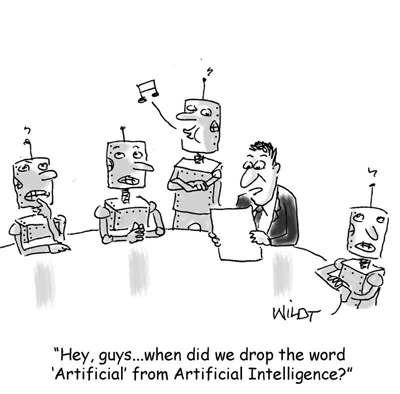 |
October time of year, you don’t need to be hit on the noggin by an acorn to remember that from a small nut comes the mighty oak. Bud Cargo Day sponsored by Budapest Airport, took off October 8 at the airport promised to go deep dish into the e-commerce revolution with a panel of locals moderated by Adrián Palágyi, BUD Cargo Development Manager. “Outlook Ecommerce” included Adam Meszaros, Country Manager DHL Express; Dennis Li, General Manager, Cainiao Network; Stephan Asbreuk, Chief Growth Officer (CGO Via Europe, and Craig Strickland, Chief Sales Officer, Box C, all of whom shared experiences and talked all about the latest trends and challenges. At Bálna, Budapest Air Cargo Day sponsored by Budapest Airport took place for the 7th time with determination to “build it and they will come,” “The event,” BUD insists, “awaits interested parties with a high-quality professional program, where, with the participation of leading industry experts in air cargo, it provides a 360-degree overview of local, regional and global air cargo news, challenges and current trends.” Works for us. https://www.bud.hu/ |
 |
Here we say goodbye, farewell and happy landings always to Johan Martin Schröder (May 13, 1931 – October 2, 2024) Martin was a pioneering Dutch pilot and founder of Martinair, the second Dutch airline (after KLM Royal Dutch Airlines) and the first Dutch air charter company. Recall one evening in Miami when he was honored at a special dinner with other aviation greats, including George Batchelor and Freddie Laker, all of whom sat at the same head table as we enjoyed hearing from larger-than-life aviation pioneers that day. But this is all about dear Martin. “Agile like Martinair: proactive in moving quickly to meet market demand, being able to efficiently change aircraft type as demand rises; to react to charter needs and overall continually streamline our thinking, and for example, set up short term networks,” he said. We recall those words and just love it. Before too long came the mega combo of Air France-KLM, all of which finally acknowledged little Martinair Cargo, the legendary airline that could. We knew Martin Schröder during the days we used to hang around Schiphol Airport in the Jacques Ancher era, when Pieter Bouw ran KLM and people like Stan Wraight and Jan H. Meurer were in the building every day. Paintings and sculptures, the work of local artists, were hung in the cargo terminal just to celebrate being alive and in the air cargo business. But as big and innovative as KLM Cargo was, and we wrote a book "True Blue" about it; over on the other side of the field was little Martinair Cargo, smart, efficient, quick to market—a constant surprise. Writing again of “Martinair Agility” brought back memories of those halcyon days. “While you are reading a book, it is also reading you,” the Danish author and poet Hans Christian Andersen advised, and we say with thanks, Amen to that, whilst whistling in the dark in a sentimental mood, remembering why Johan Martin Schröder matters. GDA |
If
You Missed Any Of The Previous 3 Issues Of FlyingTypers Access complete issue by clicking on issue icon or Access specific articles by clicking on article title |
||
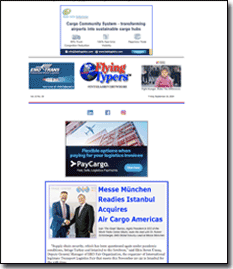 Vol. 23 No. 38 Messe Muenchen Readies Istanbul Acquires Air Cargo Americas Chuckles for September 20, 2024 Transatlantic Trade Security Challenges E-Commerce Week In Belgium |
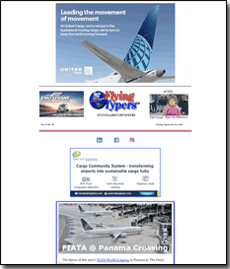 Vol. 23 No. 39 FIATA At Panama Crossing |
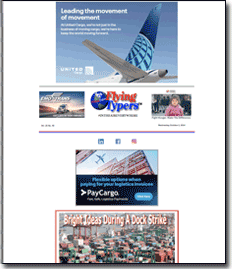 Vol. 23 No. 40 Bright Ideas During A Dock Strike Chuckles for October 2, 2024 Buffalo Airways Cargo Barges Ahead |
Publisher-Geoffrey Arend • Managing
Editor-Flossie Arend • Editor Emeritus-Richard Malkin |
Send comments and news to geoffrey@aircargonews.com
|